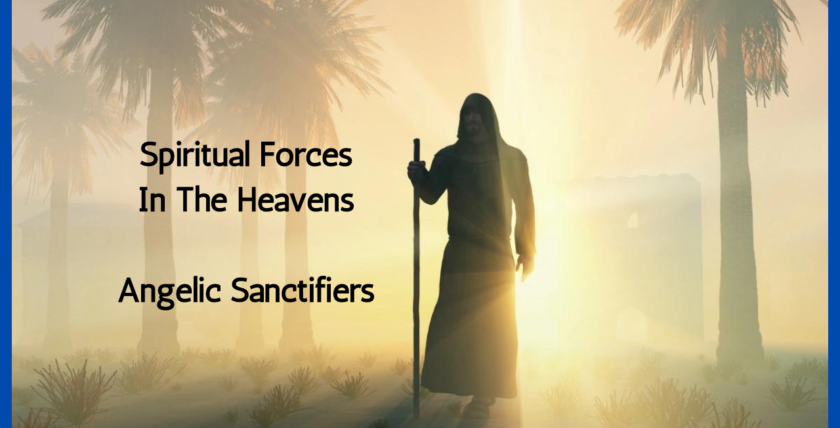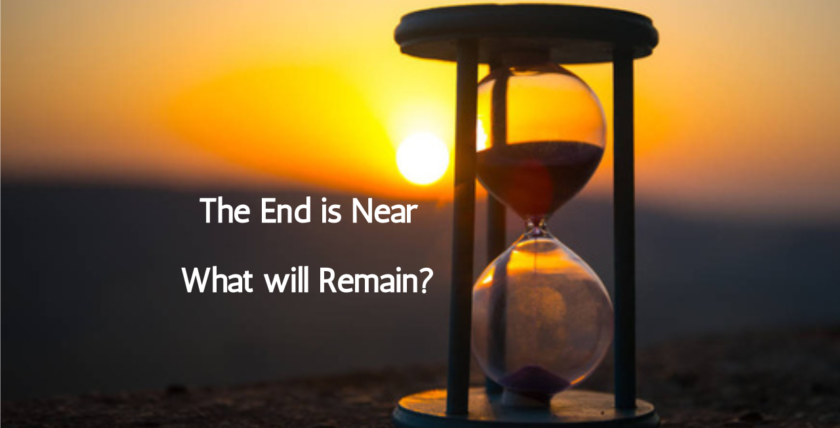Welcome to Sonday Life, where we aim to live every day in a spiritually organic way as the Son’s Day. Whether this is your first time with us or joining us from previous videos or podcasts, it’s great to have you here as we study God’s word together. In the last episode of the series, Spiritual Forces in the Heavens, I introduced a fourth category of celestial beings in the Angelic Hierarchy called Principalities & Powers. In a previous episode, I identified Seven Great Angelic Powers: The Angel of the Abyss, The Angel of Death, The Mighty Angel, The Angel of Great Authority, The Angel of the Lord, The Angel of God’s Presence, and The Satan. I’ve titled this episode The Mysterious Angelic Power: The Mighty Angel. I wanted to do the “Mighty Angel” and the “Angel of Great Authority” together, but it was impossible. These two angels reveal so many significant characteristics of God that I couldn’t get it all in one episode. So we’ll discuss the Mighty Angel in this video and the Angel of Great Authority next.
Let’s pick up from the last episode and review some critical cultural points as we discussed the Angel of the Abyss and the Angel of Death. I said in the previous episode that during the time of Jesus, the Temple priests taught the Seven Spirits of God, which were seen in the Menorah’s seven branches. In Isaiah 11:1-2 we saw the seven Spirits of God.
In the last episode, we saw that the Angel of the Abyss and the Angel of Death aligned with the Temple priest’s teaching about the seven Spirits of God as God’s “Might/strength” and his “Counsel/judgment” from Isaiah 11:2. They also aligned with the Jewish philosopher Philo’s teaching on the six great powers related to God’s Punitive and Legislative powers.
From those Angelic Powers, we saw God’s punishment for sin being the grave, which no one can escape, and His judgment for sin as death, which no one can defeat. In this episode, we will look at the Mighty Angel, who aligns with God’s Spirit of “Wisdom,” which we read in Isaiah 11:2. And with one of *Philo’s six powers, the Creative Power.
In both Philo’s framework and the teachings of the Temple priests, these angelic powers exhibit distinct characteristics of God’s nature. The Mighty Angel also establishes the character of God in heaven and earth by its actions (Revelation 10:1-11).
As we interpret what’s happening here, we will start at the end with John eating the little scroll and compare it to Ezekiel 3:1-3.
What was the scroll this angel had in its’ hand? Let’s look earlier at Revelation 5:1-3. This wasn’t the scroll the Mighty Angel had, though he had some involvement in this scroll. The scroll Ezekiel was told to eat was a rolled parchment, not a book like we would think. The scroll John was said to eat wasn’t a book either. The Greek word John used here was bibliaridion. This word isn’t used anywhere else in the Bible or even in any Greek documents ever discovered. This was a brand new word. The nearest that can be determined about its meaning is that it’s derived from a particular document like a will. Consuming the document represented the complete internalization of what it said and made it a part of who John was. John had to live the rest of his life with the outward expression of the reality of the instruction he consumed. The Mighty Angel told him he would take that message before many peoples, nations, cultures, and leaders, which John did in his life and in writing Revelation, which has been read by billions of people for hundreds of years.
In Revelation 10:5-7 we see the Mighty Angel standing with one foot on the sea and one on the land, representing God’s authority over all creation. We know this because, in verse six, the Mighty Angel swore by God, who created heaven, earth, the sea, and everything in them. That’s everything created on earth. To swear is to take an oath. What oath did the Mighty Angel take? To pronounce the end of the old creation. There would be no more time. The time I had run out of the old creation. In the Song of Moses from Deuteronomy 32:40-41, we have the same image of God’s judgment. This representation of God is saying to Israel – I created you, and I can end you, or I can save you.]
This Angel represented God’s creative power and ability to bring life, order, and purpose to a rebellious world through His divine will. In Revelation 10:1-4, the Mighty Angel came down from heaven wrapped in a cloud. There was a rainbow over his head. His face was like the sun, his legs were like pillars of fire, he called out loudly like a roaring lion, and there was thunder.
As I’ve said, seventy to eighty percent of Revelation is referenced from the Tanakh, though not directly quoted (REF. Ezekiel 1:4 and Ezekiel 1:27-28). The prophet describes the appearance of the likeness of the LORD’s glory. This means it is like the LORD’s glory, not God’s. Ezekiel saw the same Mighty Angel as John.
In Daniel 10, a great unnamed angel dressed in white linen appears to Daniel. Daniel was terrified, but the angel touched him and gave him strength. In Daniel 11, the angel tells him that wars and tribulations will come to Israel. Then, in Daniel 12:7, the angel says time will run out for Israel. The time for salvation was ended. In Daniel and John’s Revelation, God’s covenant with Israel ended with judgment. But, also, for the rest of humanity and the nations, there will come a day when time will run out to receive God’s grace through the New Covenant of His Son.
I could go on and on with verses from the Tanakh that describe the representation and actions of God involving his dealings with the beginnings and endings of his creation. But our point with the Seven Angelic Powers is how they show us God’s character through their words and actions as they interact between heaven and earth. This Mighty angel represents God’s creative authority over the earth, reinforcing His role as the creator of all things. The creative power symbolizes God’s ability to bring life, order, and purpose into the world through His divine will. His will was revealed to John as he internalized God’s plan for the salvation of humanity through His Son, Jesus Christ. As it was for John, it is for all who believe in Jesus Christ. We are called to consume the Gospel of Christ and internalize it, and then we share God’s will by spreading the kingdom of God on earth. This was always the plan from the time before the world was created.


